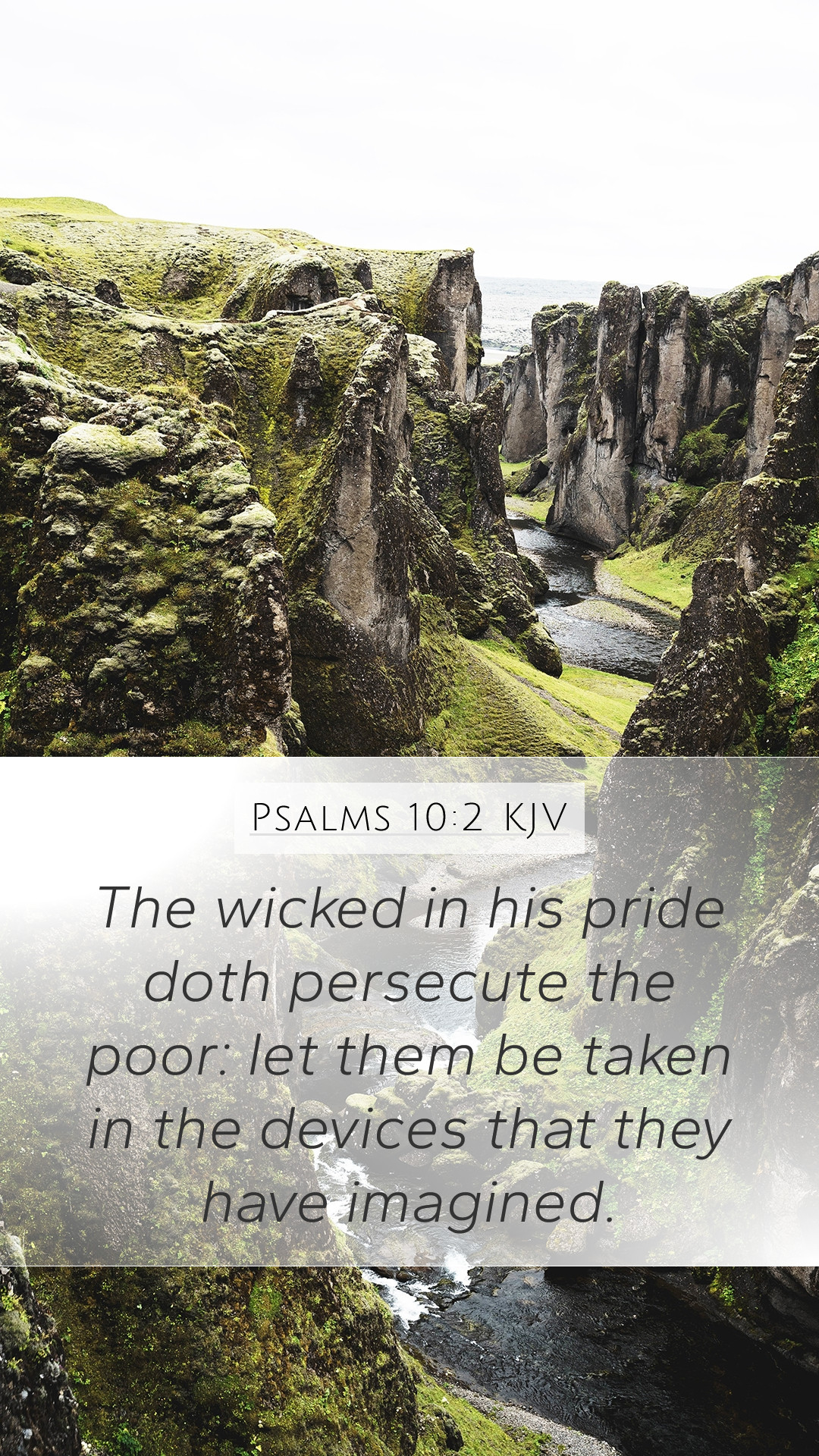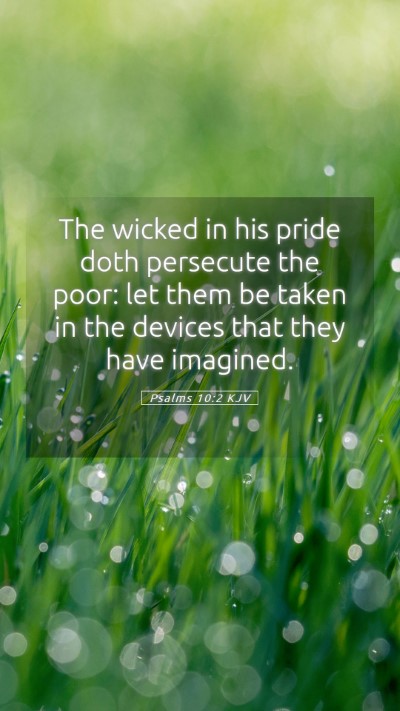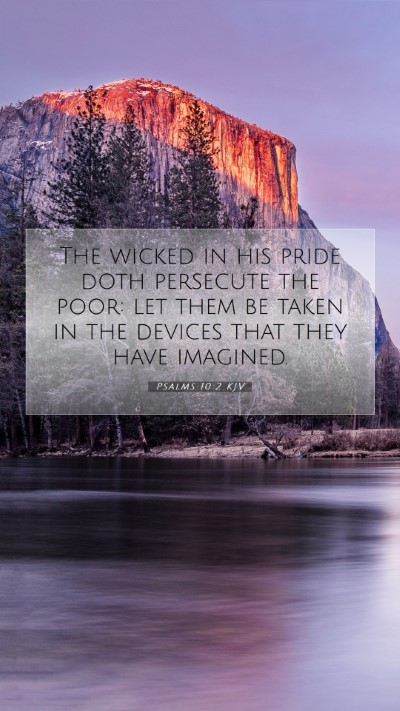Understanding Psalms 10:2: A Comprehensive Commentary
Bible Verse: Psalms 10:2
Verse Text: "The wicked in his pride doth persecute the poor: let them be taken in the devices that they have imagined."
Introduction to Psalms 10:2
Psalms 10:2 presents a profound observation about the nature of wickedness and the plight of the poor. This verse invites readers to explore themes of pride, persecution, and divine justice. By examining this verse through the lenses provided by public domain commentators like Matthew Henry, Albert Barnes, and Adam Clarke, we can gain a richer understanding of its implications.
Verse Analysis and Commentary
The verse begins with, "The wicked in his pride doth persecute the poor." This clause highlights the character of wicked individuals, describing their arrogance and their tendency to oppress those who are less fortunate.
- Matthew Henry's Insight: In his commentary, Henry emphasizes the audacity of the wicked, who take advantage of their power to afflict the vulnerable. He notes that pride is often the root of such behavior, as it blinds individuals to their moral responsibilities and the needs of others.
- Albert Barnes' Perspective: Barnes elaborates on the concept of pride, arguing that it leads to a false sense of superiority. He indicates that this perception allows the wicked to rationalize their immoral actions against the poor.
- Adam Clarke's Examination: Clarke examines the term "persecute," suggesting that it denotes a systematic effort to harm and oppress the innocent. He underscores the severity of this conduct, indicating that the wicked often plot intricate schemes against their victims.
The Devices of the Wicked
The second part of the verse states, "let them be taken in the devices that they have imagined." This phrase shifts the focus from the actions of the wicked to the consequences of their schemes.
- Matthew Henry's Conclusion: Henry expresses hope that the very plots the wicked devise will lead to their downfall. He portrays this as an anticipated justice, suggesting that divine retribution is inevitable.
- Albert Barnes' Reflection: Barnes highlights the idea of divine justice, asserting that the schemes devised by the wicked will ultimately ensnare them. He believes this reinforces the certainty of God's sovereignty and the balance of justice.
- Adam Clarke's Commentary: Clarke notes that the devices referred to could include both physical and spiritual traps. He stresses that these schemes are ultimately futile when opposed to divine wisdom and justice.
Application of Psalms 10:2
The relevance of Psalms 10:2 transcends its immediate historical context. It speaks powerfully to contemporary issues concerning injustice, exploitation, and social inequality.
- Reflection on Human Nature: The verse serves as a reminder of the persistent presence of wickedness in the human heart and the tendency to exploit the vulnerable.
- Encouragement for the Oppressed: For those experiencing oppression, this verse can offer hope, indicating that perpetrators of injustice will ultimately face divine accountability.
- Biblical Exegesis in Study Groups: In Bible study groups, this verse can spark discussions around the themes of justice, pride, and the role of faith in combating evil societal structures.
Cross References
Related scriptures that reinforce the themes found in Psalms 10:2 include:
- Psalms 73:3: "For I was envious at the foolish, when I saw the prosperity of the wicked."
- Proverbs 16:18: "Pride goeth before destruction, and a haughty spirit before a fall."
- Lamentations 3:34-36: "To crush under his feet all the prisoners of the earth, to turn aside the right of a man before the face of the most High, to subvert a man in his cause, the Lord approveth not."
Conclusion
Psalms 10:2 encapsulates a poignant message regarding the dynamics of pride and persecution in human relationships. The insights gleaned from various commentaries provide depth to our understanding of scripture as it relates to contemporary issues of justice and morality. Delving into this verse not only enhances our Bible verse interpretations but also aids in our Bible study insights as we seek to apply these timeless truths to our lives.


